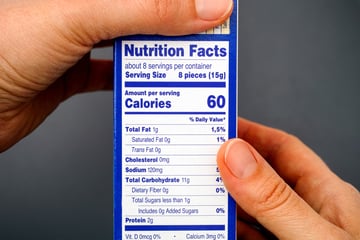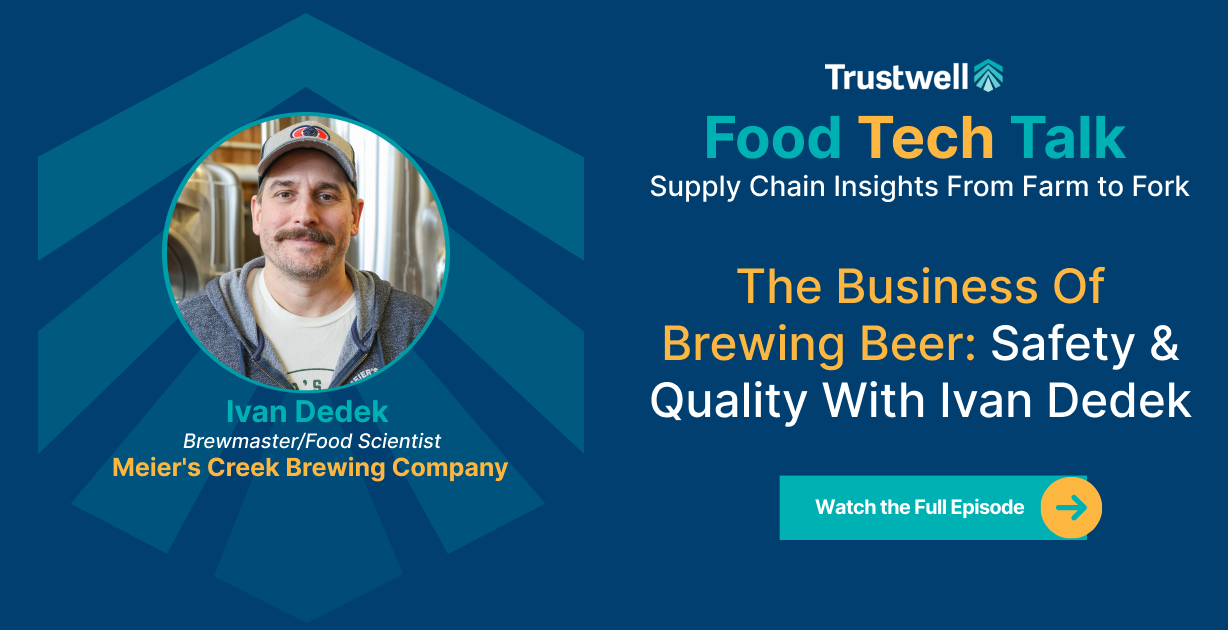Who is Ivan Dedek?
Ivan Dedek is the Brewmaster and Food Scientist at Meier’s Creek Brewing Company in Cazenovia, New York. Ivan trained in food science and fermentation back in 2013 and hasn’t looked back since he landed his first internship at Brewery Ommegang. These days he’s dead set on “proudly brewing what's next for craft beer in the heart of New York State." And with two locations and a stunning portfolio of beers, Meier’s Creek Brewing is always looking to the future, while keeping a solid and steady eye on quality, safety, and compliance.
Pushing the Boundaries of Brewing
Ivan has bucketloads of great advice for newcomers to the brewing industry, but this is a business that most who get into it, do so because of a real love for the art and the craft of brewing beer, and as a result, one piece of advice that’s easy to follow is: to keep experimenting and pushing the boundaries of what’s been done before. But keeping the process fresh by trying new things isn’t just for fun – in fact, it’s becoming more and more vital to stand out.
Ivan knows the industry better than most and from where he’s stood, the market is shrinking, younger people are drinking less and less beer, and yet the competition to be the hottest new beer on the market is fierce. Those competing forces leave little room for failure, and yet to experiment is to risk failure, and if you’re not offering something a little bit different, you’re probably destined to fade into the background and disappear.
Craft beer consumers demand exceptional quality, and brewmasters have to utilize the latest technological advancements to meet these expectations. From ingredient selection to brewing process control, technology enables brewmasters to achieve consistent, high-quality, and envelope-pushing beer.
“We have wild programs, barrel age programs, all sorts of different programs that are going on, and a lot of times those things just aren't good, so you have to push the boundaries and experiment.”
Cleanliness is Next to Godliness in Brewing
Ivan makes an important point about safety concerns around brewing when compared with those of food or dairy products for example during the podcast. He explains how pathogens are not really a threat that the brewer needs to be worried about. But that doesn’t mean you can afford to be lax. Cans exploding on shelves or in cars because of some contamination is not a good look even if the health risks associated with spoiled beer are minimal. Ivan’s tips on avoiding exploding cans or giving the consumers of your beer a stomach ache are applicable from the smallest of homebrewing operations to the biggest breweries around.
For Ivan, quality means consistency, and consistency means attention to detail, and attention to detail means testing, testing, and more testing. What you’re looking to avoid is any and every single window of potential ‘microbial ingress’. There are a number of hotspots for this during the brewing process, but the point is, you have to be absolutely certain that every inch of your equipment is properly cleaned otherwise you’re allowing a contaminate into the process that could spoil the whole batch, and you may not even discover that until much later.
As far as Ivan is concerned, the technology available now means there’s no excuse to be constantly across testing. It’s a game of numbers, says Ivan: pH, gravity, and dissolved oxygen levels; the availability of spectrophotometers and gas chromatographs, allows for accurate and precise analysis of beer samples in a way that would have been much more difficult in the past.
The Business of Brewing
Ivan came into brewing from a finance background – he restrained and was educated in the science of the industry, but he already had the math in his head. It’s possible that newcomers in this industry, people who are following a dream, may not be as well prepared for the business aspect of working for a brewery as Ivan was. Ivan’s advice to those people is therefore invaluable. Labor costs, ingredients, gas and electricity, equipment, maintenance – if you don’t have the numbers behind all these things clear in your head, then it doesn’t matter how good your product is, it will sink without a trace.
“One thing I have learned is that you can make the greatest beer in the world, but if it's not profitable, you're going to struggle in business.”
Stay humble, and don’t expect to go straight into your dream role straight away – get educated, and accept that you may be starting at an entry-level position. These are all tenets of Ivan’s philosophy, and according to him, once you do rise to a more senior role, it will be incredibly useful if you’ve had experience in all different areas: canning, cleaning kegs, packaging, and the like. You never know when you’ll be called on to help. Ivan emphasizes the importance of being versatile in the brewing industry, recounting a recent experience where he spent an entire day on the canning line due to a colleague being out sick. It serves as a reminder not to overlook any aspect of the brewing process and to always be ready to pitch in wherever needed.
Understanding your equipment is crucial for long-term success in the brewing industry. Without a boiler, glycol chiller, or canning line, you won't be able to produce, and without production, you won't make money, risking the survival of your business. So, it's essential to have a thorough knowledge of your equipment.
Ivan is an inspirational figure in brewing and clearly a passionate natural leader. He is able to show us how brewing can work as both a business and a labor of love, with neither of those aspects being brushed under the carpet nor overemphasized. You can find out for yourself and much more besides by tuning into our conversation.
Check out the full podcast episode via the links below. Be sure to subscribe, rate, review, and share!
- Apple: Food Tech Talk: Supply Chain Insights from Farm to Fork
- Spotify: Food Tech Talk: Supply Chain Insights from Farm to Fork
Tag(s):
Food Safety
Other posts you might be interested in
View All Posts
Product Formulation
15 min read
| April 18, 2019
How to Create an FDA-Compliant Nutrition Facts Label
Read More
Product Formulation
10 min read
| February 24, 2023
The Price of Safety: Understanding the True Cost of a Food Recall
Read More
Food Labeling
15 min read
| August 15, 2025


